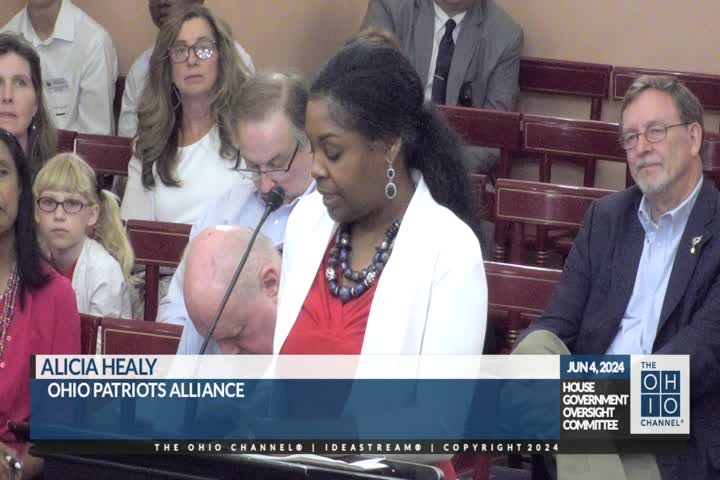Elites plot to replace the US Constitution
June 04, 2024 | Government Oversight, House of Representatives, Committees, Legislative, Ohio

This article was created by AI summarizing key points discussed. AI makes mistakes, so for full details and context, please refer to the video of the full meeting. Please report any errors so we can fix them. Report an error »

In a recent government oversight committee meeting, concerns were raised regarding the potential implications of House Joint Resolution 3 (HJR 3), which calls for a constitutional convention under Article V of the U.S. Constitution. Testimonies from various speakers highlighted fears that such a convention could lead to significant changes or even the replacement of the Constitution itself.
One speaker passionately argued that the Constitution, which he described as a \"promissory note\" for American freedoms, is being increasingly ignored by the federal government. He emphasized that while the Constitution is meant to restrain government power and prevent tyranny, current actions—such as foreign aid and border security—contradict its principles. He warned of a \"crisis\" where states and citizens are at odds with federal authority, suggesting that the battle for constitutional integrity would require more than legal arguments.
The speaker also expressed concerns about elite groups allegedly plotting to undermine the Constitution, citing historical figures like Woodrow Wilson and contemporary influences from organizations such as the Council on Foreign Relations. He claimed that these elites are pushing for an Article V convention to facilitate a bureaucratic takeover, which he believes would threaten individual rights, including the Second Amendment.
Another participant echoed these sentiments, stating that HJR 3 is not the appropriate solution for today's political climate and could jeopardize limited government and individual rights. They urged committee members to consider alternatives that align with constitutional principles.
The meeting also featured a young speaker, Leah Owens, who expressed gratitude for educational reforms and highlighted her achievements in sports, showcasing a hopeful perspective amidst the serious discussions.
As the committee deliberates on HJR 3, the testimonies reflect a deep-seated apprehension about the future of the Constitution and the potential consequences of a constitutional convention, emphasizing the need for vigilance in protecting American liberties.
One speaker passionately argued that the Constitution, which he described as a \"promissory note\" for American freedoms, is being increasingly ignored by the federal government. He emphasized that while the Constitution is meant to restrain government power and prevent tyranny, current actions—such as foreign aid and border security—contradict its principles. He warned of a \"crisis\" where states and citizens are at odds with federal authority, suggesting that the battle for constitutional integrity would require more than legal arguments.
The speaker also expressed concerns about elite groups allegedly plotting to undermine the Constitution, citing historical figures like Woodrow Wilson and contemporary influences from organizations such as the Council on Foreign Relations. He claimed that these elites are pushing for an Article V convention to facilitate a bureaucratic takeover, which he believes would threaten individual rights, including the Second Amendment.
Another participant echoed these sentiments, stating that HJR 3 is not the appropriate solution for today's political climate and could jeopardize limited government and individual rights. They urged committee members to consider alternatives that align with constitutional principles.
The meeting also featured a young speaker, Leah Owens, who expressed gratitude for educational reforms and highlighted her achievements in sports, showcasing a hopeful perspective amidst the serious discussions.
As the committee deliberates on HJR 3, the testimonies reflect a deep-seated apprehension about the future of the Constitution and the potential consequences of a constitutional convention, emphasizing the need for vigilance in protecting American liberties.
View full meeting
This article is based on a recent meeting—watch the full video and explore the complete transcript for deeper insights into the discussion.
View full meeting
